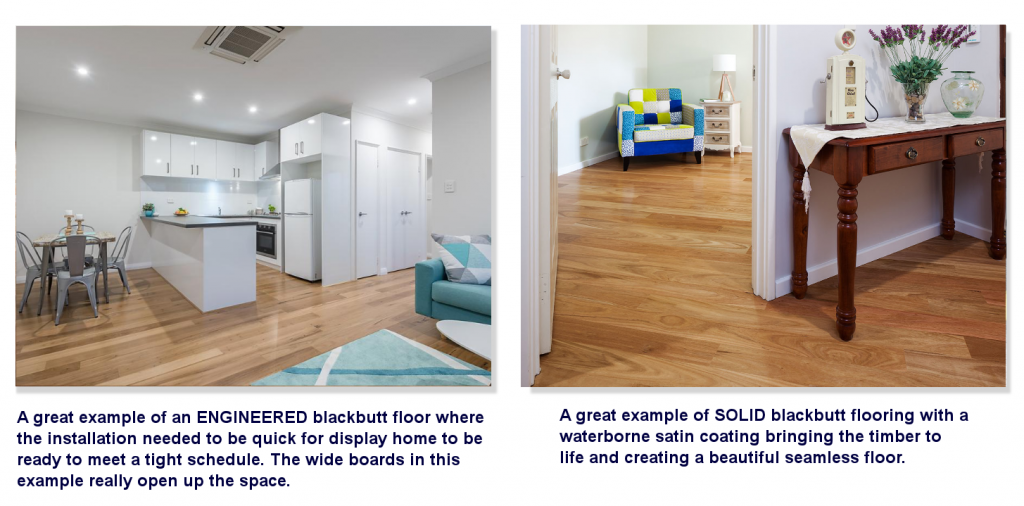Boschy’s Blogs
February 2019
by Richard Catlin
Is Engineered Timber Flooring really better than Solid timber flooring?
We would like to let you in to a secret. Recently, we completed a series of mystery shopping expeditions at some of our competitors.
There’s a number of reasons we do this.
Firstly, if one of our competitors is doing something better than us, we want to learn from that and work out how we can improve.Secondly it gives us an insight into the products they are recommending and how they are promoting them.
Does Engineered really last 70 years?
It’s fair to say we were more than surprised when not one but two competitors told our in-disguise mystery shoppers than an engineered timber floor would last 70 years! To say that is an unrealistic expectation would be an understatement. It really annoyed us to hear this type of misinformation being suggested to potential customers.
It was clear to our mystery shoppers that outlets like these did not have the expertise to provide high quality solid timber floors, so they over sold the benefits of engineered timber floors.
Engineered and Solid Timber Floors both have pros and cons
The absolute truth is that both solid and engineered timber floors are great products and have different benefits and drawbacks. Depending on the situation, there will be times when a solid timber floor is a more appropriate choice and other times when an engineered timber floor is a better option.
Bosch timber floors specialise in all types of timber floors so we make it our business to understand the customers requirements and preferences before suggesting which is the best option to meet their needs.
Choosing the right timber floor will add considerable value to your home
The decision on whether you choose a solid or an engineered timber floor will come down to the benefits of each option and how that fits with your plan for the home.
When you make the right choice, you will add great value to your home as traditionally timber floors are the most desired flooring finishes for home buyers. In particular solid timber floors will always have a perception of being higher value given that they will last longer than engineered timber floor options.

So how do they compare?
Solid timber floors will have a significantly longer life than Engineered Timber Floors. A solid timber can be re-sanded 3 to 4 times after its initial installation as there will be on average 7mm of timber over the tongue providing plenty of timber for re-sanding in the future. Most engineered timbers have a wear layer of 3mm which can be sanded back to bare timber once or twice. On average you would expect floors to be re-sanded after about 10 to 12 years if they are well looked after. A solid timber floor should therefore last for over 40 years where are an engineered floor would be expected to last around 25 years.
Engineered floors are less likely to expand and contract in changing seasons than solid timber floors. If timber loses or gains moisture in the changing seasons it can be susceptible to growing or shrinking in the width of the boards resulting in minor cupping or small gaps between boards. Engineered timber floors are less likely to be impacted by this as the product is made up of cross laminated layers that helps to keep the over all board more stable and less likely to grow or shrink after installation.
Solid timber floors provide more options to create a unique timber floor that matches the look you want to achieve. As engineered timber floors are manufactured in factories in bulk, there tends to be less choice in terms of timber species, the grade of the timber, or the type of coating and gloss level you can choose. For Solid timber floors, there are a wide range of possibilities for you to consider to create the timber floor that meets your preferences. In addition to availability of more timber species, coating types and gloss levels, solid timber floors can also have contrasting boarders, the option to staining or tinting the timber to preferred colour tones and a wider range of options in board widths that may work better for the space that the timber floors will be installed in. And because timber floors are sanded and coated on site, the floor finish will be more seamless between boards and the coatings leaving no noticeable edge between boards.
Engineered Timber floors are generally quicker and cleaner to install. As generally these floors are prefinished in the factory, once they are installed, they are finished and ready to live on the next day. Solid timber floors however require the sanding and coating process to be completed after the installation which extends the time that you will need to be off your floors. As a result, in most cases engineered timber floors will over all be less expensive than a solid timber floor as it is more cost effective to coat the timber in a factory than sanding and coating on site.
So it’s fair to say there’s is no definitive option that is better. Either solid timber floors or engineered timber floors may be a better alternative in different situations.
If you visit a Bosch timber floors showroom, our consultants will want to find out more about your requirements and preferences to make sure they recommend a timber floor that works best for your space.
We hope to welcome you at our showroom to help you find the floor that’s right for you.

Richard Catlin
Owner Manager



